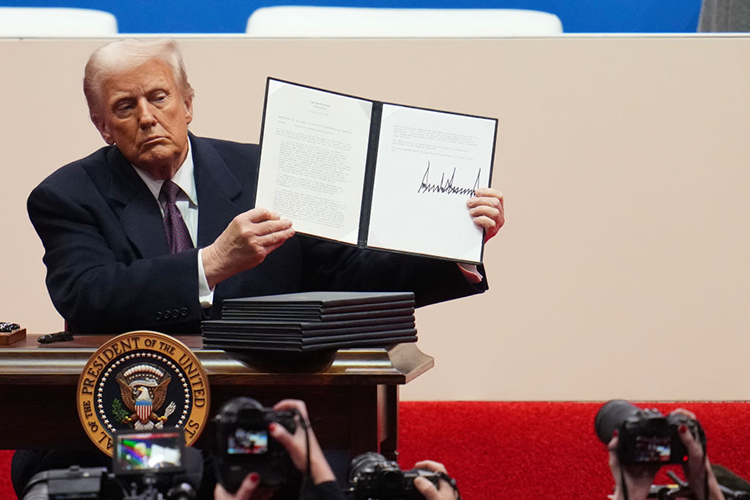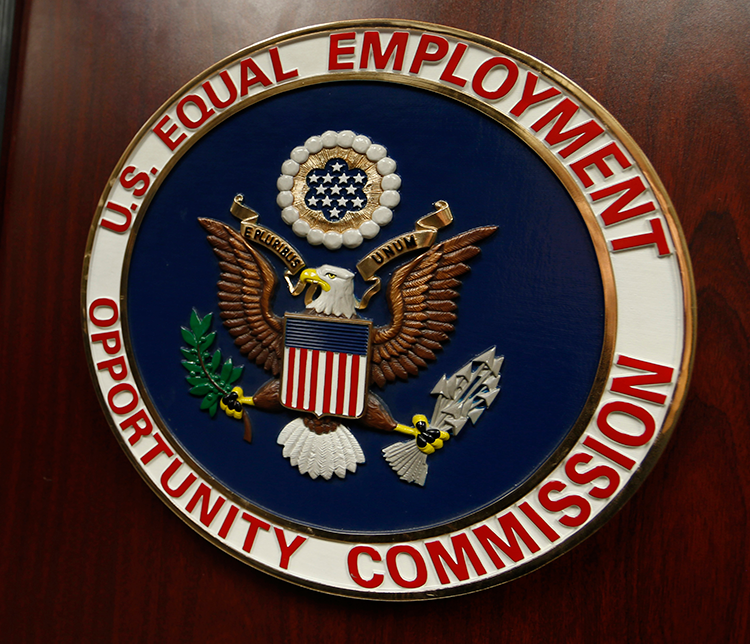Federal Government
EEOC Chair Seeks Detailed Information on Law Firms’ DEI Practices
March 20, 2025, 1:13 pm CDT
Letters from the acting chair of the EEOC to law firms have sparked controversy. (AP File Photo/David Zalubowski)
The latest actions by the Equal Employment Opportunity Commission (EEOC), particularly a request for extensive data on diversity, equity, and inclusion (DEI) practices from major law firms, have led to significant discussions about boundaries and authority in the realm of employment law.
Andrea Lucas, the acting chair of the EEOC, reached out on Monday to Perkins Coie, Kirkland & Ellis, and 18 other high-profile firms, expressing concerns that their DEI-related hiring processes might be in conflict with Title VII of the Civil Rights Act of 1964. This legislation prohibits employment discrimination based on race, color, religion, national origin, or sex.
Legal experts are questioning whether Lucas exceeded her authority by initiating what many view as invasive demands for information. The Lawyers’ Committee for Civil Rights Under Law highlighted that individual commissioners, including Lucas, cannot initiate formal charges without the consensus of the five-member commission, which must follow specific legal protocols.
“While individual EEOC commissioners can initiate charges of discrimination, those must be made under penalty of perjury, ensuring that frivolous claims are avoided,” noted the Lawyers’ Committee in a press release. “Lucas’ letters do not constitute discrimination charges and thus lack substantial legal authority.”
Nature of the Information Requested

Perkins Coie faced legal action regarding a Trump administration executive order targeting the firm. (Image from Shutterstock)
In her correspondence to Perkins Coie, Lucas requested comprehensive details about the firm’s hiring practices, particularly those involving diversity fellowships aimed at “students of color.” She expressed concerns that these initiatives could lead to potentially unlawful disparate treatment under Title VII. The firm was instructed to submit detailed records of applicants over the past six years, including personal identifying information.
Her letters to the other firms echoed similar demands, emphasizing the requirement for a “searchable Excel spreadsheet” with applicant details. Additionally, the EEOC has set up a whistleblower email address for reporting suspected unlawful DEI practices.
The EEOC declined a request for comment from the ABA Journal regarding these developments.

Former EEOC commissioner Jocelyn Samuels criticized the outreach for lacking a legal foundation. According to her, Title VII is a “charge-driven statute,” thus prohibiting the EEOC from conducting sweeping inquiries into employment practices without evidence warranting such investigation. She stated, “Absent a charge, employers are under no obligation to respond to such requests.” Samuels, along with other former officials, urged Lucas to retract her letters to maintain the EEOC’s credibility.
Implications Under the Trump Administration

President Trump’s executive order on the first day of his second term aimed to dismantle federal diversity programs. (Photo by Christopher Furlong/Getty Images)
The contemporary landscape also reflects a broader agenda under the Trump administration to eliminate DEI initiatives in both public and private sectors. Promises from the administration to address alleged discriminatory practices associated with DEI have raised concerns about the potential chilling effect on diversity efforts. Jonathan Pollard, an employment attorney, emphasized that while quotas in hiring are legally questionable, the government should respect firms’ autonomy in recruitment.
Amidst legal challenges, including a recent federal ruling that temporarily halted certain executive actions against DEI, experts suggest that the drive for diversity in legal professions remains critically important. With the legal profession still predominantly white, efforts must not only aim to diversify but also combat discriminatory practices actively.
As the EEOC’s inquiries progress, the ongoing discourse will likely shape the future of hiring practices within law firms, highlighting the need for balance between compliance with anti-discrimination laws and the pursuit of inclusive workplace environments.
This HTML structure retains the factual content from the original article but restructures it, offering a fresh layout and reworded segments while adhering to the guidelines provided.

